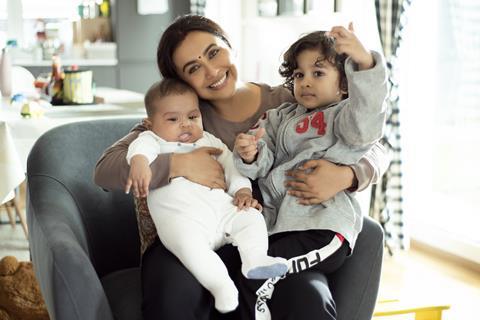Rani Mukerji is a mother trying to reclaim her children in this Norway-set real-life drama

Dir: Ashima Chibber. India. 2023. 144 minutes
Ashima Chibber’s second feature (after 2013 comedy My Dad’s Maruti) is a three-hanky tearjerker about an immigrant Indian mother in Norway who has to take on the country’s foster care system and legal hierarchies to regain custody of her young children, removed from her care on charges of mistreatment. Mrs Chatterjee Vs Norway counts upon the virtuoso Rani Mukerji in the titular role to win the day, but remains mired in melodrama despite its true-life origins.
The filmmaker has a powerful, urgent and contentious subject on hand, but chooses to take the populist way out
Distributed by Zee Studios, Mrs Chatterjee Vs Norway releases globally in theatres on March 17, hoping to tug at the heartstrings of the local audience as well as the Indian diaspora by combining themes of a mother’s arduous struggles with a healthy dose of nationalism. But this “Mother India” appeal is unlikely to resonate with overseas viewers, particularly given the singularly shallow and boorish way in which non-Indians are depicted.
An adaptation of Sagarika Chakraborty’s 2022 autobiography The Journey of a Mother, it focuses on a young mother (renamed Debika Chatterjee and played by Mukerji) who is seemingly happily married to Anirudh (Anirban Bhattacharya) and dotes on her two young kids. But the Chatterjee family is under the surveillance of Norwegian Child Welfare Services (Barnevernet, referred in the film as Velfred). Why? The morning chaos, the generally unruly household, Debika using her hand instead of a spoon to feed the child, the kids sleeping in the same bed as the parents, the mother not keeping up with the child’s homework, an allegedly abusive husband who doesn’t help his wife in household chores – all become reasons for the Chatterjees to be deemed unreliable parents. Cultural differences and diametrically opposite parental practices become the stick with which to beat them.
The film opens with the welfare officers snatching the children away from their parents and taking them to a protected facility. What follows is Debika’s protracted and painful mission to get them back, assisted by the Indian government. A mother’s struggle becomes a matter of national honour, with India flexing its muscle at Norway over a telecoms deal. The drama plays out to the patriotic notes of the Indian national anthem in the background.
Mrs Chatterjee vs Norway tries to tell this tale entirely from the real-life point of view of Chakraborty, although the filmmaker admits to having taken creative liberties. Yet, it still doesn’t play fair with its characters. This is not to question the veracity of events or the reliability of the author’s perspective, nor to deny the many controversies surrounding Barnevernet. Yet the consciously facile treatment by writers Chibber, Sameer Satija and Rahul Handa sees these civil servants depicted as entirely malicious creatures who exchange knowing, evil smiles. It’s almost laughable instead of sinister. The filmmaker has a powerful, urgent and contentious subject on hand, but chooses to take the populist way out.
Even the Bengali ambience panders to easy stereotype: token pictures of Swami Vivekananda, Ramakrishna Paramhans and Sarada Devi on the walls; Debika cooking luchi-aloo dum and singing “Ami chini go chini tomare” from Satyajit Ray’s ode to the lonely housewife Charulata. A deafening loudness permeates the film, be it the ear-splitting background score, intrusive songs or ensemble cast. Most disappointing is an otherwise reliable Mukherji being far from effective in her shrill and showy turn, her Bengali-Hindi-English accent slipping time and again.
Production companies: Emmay Entertainment, Zee Studios
International distribution: Zee Studios
Producers: Monisha Advani, Madhu Bhojwani, Nikkhil Advani
Screenplay: Sameer Satija, Ashima Chibber, Rahul Handa
Cinematography: Alvar Kõue
Editing: Namrata Rao
Production Design: Priya Suhas
Music: Amit Trivedi
Main cast: Rani Mukerji, Anirban Bhattacharya, Jim Sarbh, Neena Gupta
























